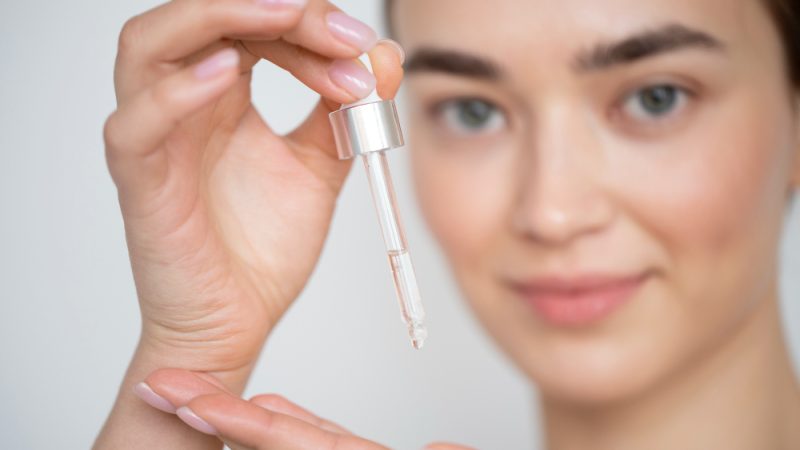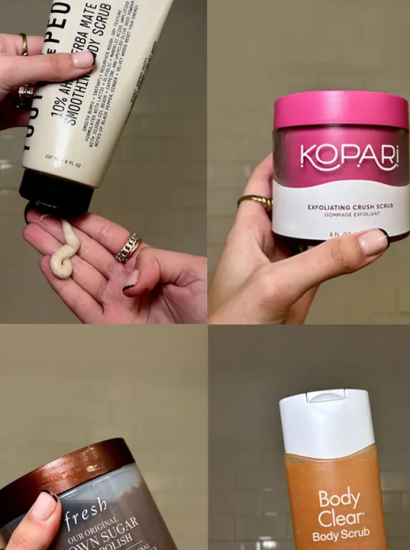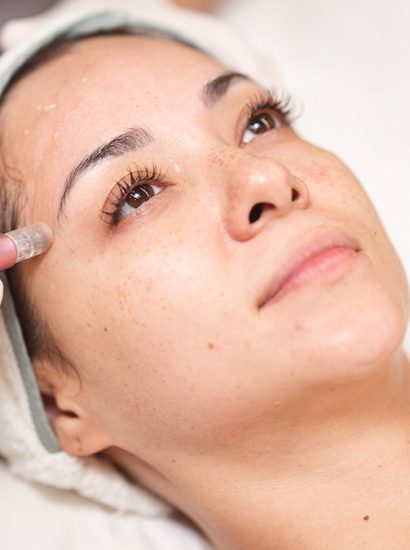In the ever-evolving world of skincare, Emulsion Skincare one term that has been gaining significant attention is “emulsion skincare.” If you’re looking to elevate your skincare routine and achieve that coveted radiant glow, understanding emulsions is crucial. This comprehensive guide will walk you through everything you need to know about emulsion skincare, from what it is to how to incorporate it into your routine effectively.
1. What is Emulsion Skincare?
Emulsion skincare involves the use of emulsions, which are lightweight, hydrating products designed to deliver moisture and nutrients to the skin without the heaviness of traditional creams. An emulsion is essentially a mixture of water and oil, stabilized by an emulsifier, creating a silky texture that penetrates the skin quickly and deeply.
Emulsions are typically formulated with a higher water content compared to creams, making them an excellent choice for those with oily or combination skin types. They provide the benefits of hydration and nourishment without clogging pores or leaving a greasy residue.
2. The Benefits of Emulsion Skincare
- Emulsion skincare offers a plethora of benefits, making it a popular choice among skincare enthusiasts. Here are some of the key advantages:
- Lightweight Hydration: Emulsions provide essential hydration without the heaviness of traditional moisturizers.
- Non-Greasy Finish: Perfect for oily and combination skin types, emulsions absorb quickly and leave a matte finish.
- Enhanced Absorption: The lightweight formula allows active ingredients to penetrate the skin more effectively.
- Layering Compatibility: Emulsions can be easily layered with other skincare products, enhancing their efficacy.
- Versatility: Suitable for all skin types, including sensitive and acne-prone skin.
3. Key Ingredients in Emulsion Skincare
- Understanding the ingredients in emulsion skincare products is essential for choosing the right one for your skin type. Common ingredients include:
- Humectants: Such as glycerin and hyaluronic acid, which draw moisture into the skin.
- Emollients: Like squalane and jojoba oil, which soften and smooth the skin.
- Antioxidants: Ingredients like vitamin C and E that protect the skin from environmental damage.
- Botanical Extracts: Such as green tea and chamomile, which provide soothing and anti-inflammatory benefits.
4. How to Choose the Right Emulsion for Your Skin Type
- Selecting the right emulsion for your skin type is crucial for achieving optimal results. Here are some tips:
- Oily Skin: Look for oil-free or low-oil emulsions with ingredients like niacinamide and salicylic acid to control excess sebum.
- Dry Skin: Choose emulsions with rich hydrating ingredients like hyaluronic acid and ceramides.
- Combination Skin: Opt for balanced emulsions that provide hydration without clogging pores.
- Sensitive Skin: Select gentle, fragrance-free emulsions with soothing ingredients like aloe vera and chamomile.
5. How to Incorporate Emulsion Skincare into Your Routine
- Incorporating emulsions into your skincare routine is simple and can enhance the effectiveness of your other products. Follow these steps:
- 1. Cleanse: Start with a gentle cleanser to remove impurities.
- 2. Tone: Use a toner to balance your skin’s pH.
- 3. Apply Emulsion: Gently pat the emulsion onto your face and neck, focusing on areas that need extra hydration.
- 4. Moisturize: If needed, follow with a moisturizer to lock in the hydration.
- 5. Protect: Finish with sunscreen during the day to protect your skin from UV damage.
6. Emulsion Skincare for Different Skin Concerns
- Emulsion skincare can address various skin concerns, making it a versatile addition to your routine. Here’s how:
- Acne: Emulsions with salicylic acid or tea tree oil can help reduce breakouts without drying the skin.
- Aging: Look for emulsions with peptides and antioxidants to combat fine lines and wrinkles.
- Hyperpigmentation: Emulsions containing niacinamide and vitamin C can help lighten dark spots and even out skin tone.
- Dehydration: Hyaluronic acid-based emulsions can deeply hydrate and plump the skin.
7. The Science Behind Emulsion Skincare
- The effectiveness of emulsion skincare lies in its formulation. Emulsions are designed to mimic the skin’s natural lipid barrier, allowing for better absorption and moisture retention. The water-oil balance in emulsions helps maintain the skin’s hydration levels, preventing dryness and irritation.
- Emulsions often use advanced delivery systems, such as liposomes or nanotechnology, to enhance the penetration of active ingredients. This ensures that the skin receives the maximum benefit from the product, improving overall skin health and appearance.
8. DIY Emulsion Skincare: Recipes to Try at Home
- Creating your own emulsion skincare products at home can be fun and rewarding. Here are two simple DIY recipes:
- Hydrating Aloe Vera Emulsion
- Ingredients:
- 1/4 cup aloe vera gel
- 1/4 cup distilled water
- 1 tablespoon jojoba oil
- 1 teaspoon glycerin
- 5 drops lavender essential oil (optional)
Instructions:
- 1. Mix aloe vera gel and distilled water in a bowl.
- 2. Slowly add jojoba oil while whisking continuously.
- 3. Add glycerin and essential oil, and whisk until well combined.
- 4. Store in a clean, airtight container and use within two weeks.
- Soothing Green Tea Emulsion
Ingredients:
- 1/4 cup brewed green tea (cooled)
- 1/4 cup rose water
- 1 tablespoon squalane oil
- 1 teaspoon vegetable glycerin
5 drops chamomile essential oil (optional)
Instructions:
- Combine green tea and rose water in a bowl.
- Slowly add squalane oil while whisking.
- Add glycerin and essential oil, and whisk until fully mixed.
- Store in a clean, airtight container and use within two weeks.
9. Common Myths About Emulsion Skincare
- Despite its popularity, there are several myths surrounding emulsion skincare. Let’s debunk a few:
- Myth: Emulsions are only for oily skin.
- Fact: Emulsions can be formulated for all skin types, including dry and sensitive skin.
- Myth: Emulsions are not as effective as creams.
- Fact: Emulsions can be just as effective, if not more, due to their enhanced absorption and lightweight texture.
- Myth: You don’t need a moisturizer if you use an emulsion.
- Fact: While emulsions provide hydration, they may need to be layered with a moisturizer for added moisture and protection.
- 10. Popular Emulsion Skincare Products to Try
- If you’re ready to dive into emulsion skincare, here are some top-rated products to consider:
- Laneige Water Bank Moisture Essence: A hydrating emulsion with mineral-rich water to replenish and revitalize the skin.
- Missha Time Revolution The First Treatment Essence: A lightweight emulsion that brightens and hydrates, improving skin texture.
- Shiseido Essential Energy Moisturizing Gel Cream: Combines the benefits of a gel and an emulsion to energize and hydrate the skin.
- Hada Labo Gokujyun Premium Lotion: A rich emulsion with five types of hyaluronic acid for deep hydration.
- COSRX Advanced Snail 96 Mucin Power Essence: Utilizes snail mucin to repair and hydrate the skin, ideal for sensitive and damaged skin.
Conclusion
Emulsion skincare offers a unique and effective approach to achieving hydrated, healthy, and radiant skin. With its lightweight texture and potent ingredients, emulsions can address a variety of skin concerns while fitting seamlessly into any skincare routine. Whether you have oily, dry, combination, or sensitive skin, there is an emulsion out there tailored to your needs. By understanding how to choose and use these products, you can unlock the full potential of your skincare regimen.
FAQs
1. Can I use an emulsion as a standalone moisturizer?
Yes, you can use an emulsion as a standalone moisturizer, especially if you have oily or combination skin. However, if you have very dry skin, you may want to layer it with a heavier moisturizer.
2. How often should I use an emulsion?
You can use an emulsion daily, both in your morning and evening skincare routines. Adjust the frequency based on your skin’s needs and how it responds to the product.
3. Are emulsions suitable for acne-prone skin?
Yes, many emulsions are formulated to be non-comedogenic, meaning they won’t clog pores. Look for emulsions with acne-fighting ingredients like salicylic acid or tea tree oil.
4. Can I layer other skincare products over an emulsion?
Absolutely. Emulsions are designed to be lightweight and easily absorbed, making them an excellent base for layering other skincare products like serums, moisturizers, and sunscreens.
5. How long does it take to see results from using an emulsion?
Results can vary depending on the specific emulsion and your skin type. However, many people notice improved hydration and smoother skin texture within a few days to a couple of weeks of regular use. For more significant results, such as reduced fine lines or even skin tone, it may take a few months of consistent use.
Also read : WHAT SKINCARE PRODUCTS SHOULD NOT BE REFRIGERATED: 10 ESSENTIALS TO KEEP AT ROOM TEMPERATURE





